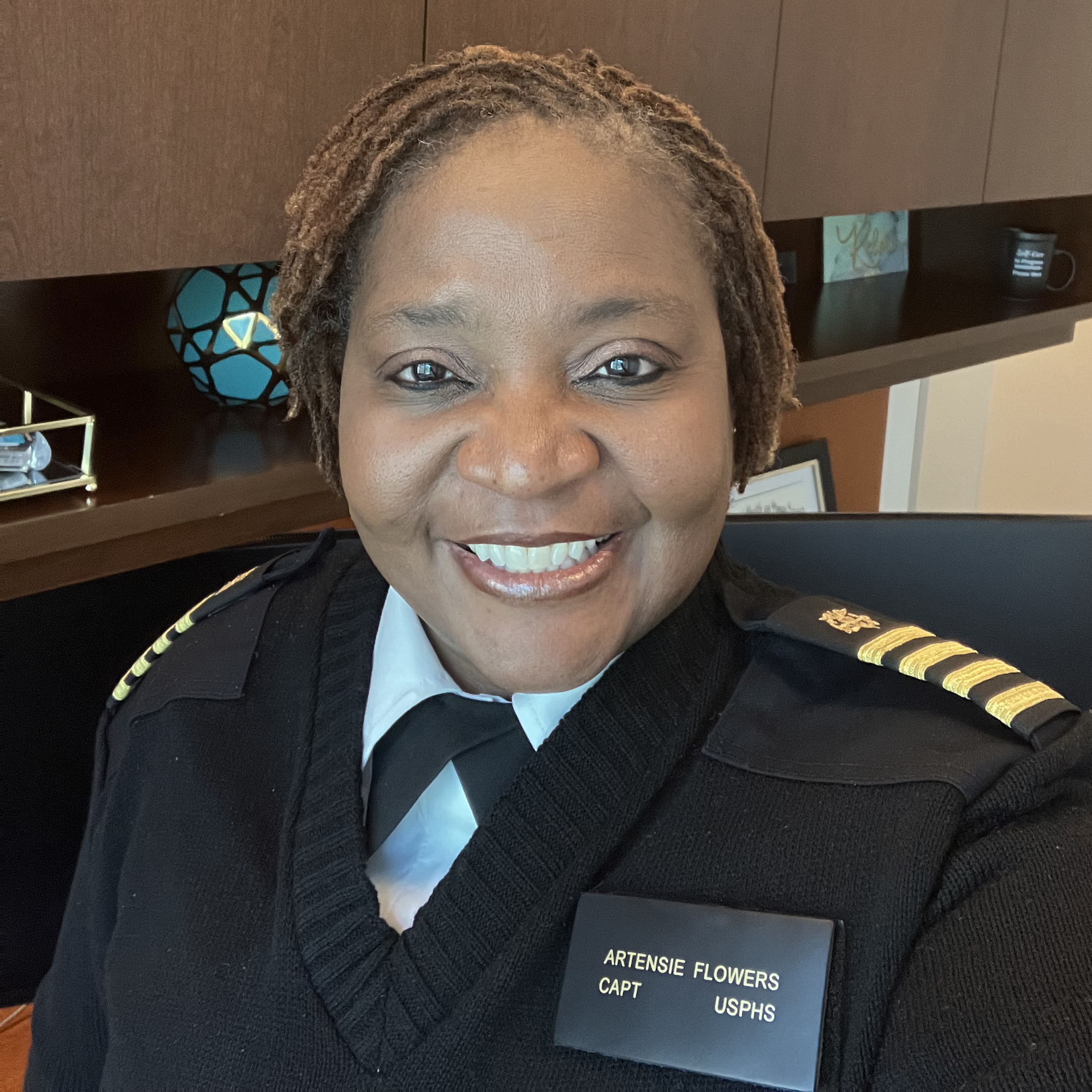International Day of Women and Girls in Science

"The skills you gain as a scientist are invaluable and will be used daily no matter what career path you take."
CAPT Artensie Flowers
Acting Director
Regional Operations
How long have you been in science and technology?
Since 1992 (32 years). I have been with ASPR for almost five years.
Do you have a specialty or focus area?
I started with HHS/USPHS as a toxicologist in 2000 and have been working in public health preparedness and response since 2004 (nearly 20 years). I would say my specialty is building solid procedures and processes for delivering services to state, local, tribal and territories to help them prepare, respond, and recover from public health emergencies.
I spent 13 years with CDC, prior to joining ASPR, working onsite at state health departments (DC Department of Health and Maryland Department of Health) helping them build their preparedness programs. I like to say that I served as a “translator.” I interpreted national guidance for the states and then helped them build a system of program management, planning, training, and exercising for preparing for and responding to emergencies. I am now doing the same at ASPR through my work with ASPR regional teams, helping build a cohesive approach to how we prepare and respond to emergencies. My specialty in building systems is made easier due to my background as a trained research scientist and computer programmer, as I am accustomed to using methodical procedures or processes to produce repeatable results.
What motivated you to take this career path?
As a scientist, I like to connect the dots. I am an integrator and enjoy exploring different perspectives to get to the big picture. I became involved with HHS pandemic preparedness and continuity of operations planning when assigned to the Office of the Assistant Secretary for Health in 2004. I was able to see how HHS was developing preparedness polices at the national level and wanted to learn more about how those polices would be implemented by states. I was motivated to figure out the other pieces of the puzzle. Working at the state health department opened my world to “boots on the ground” truth on how states really prepare and respond. Now that I am with ASPR, I feel that my career has come full circle. As Acting Division Director/Executive Officer, I help transform management and administrative activities from transactional processes to strategically focused performance-based initiatives that directly support ASPR emergency response operations.
What specialty training or education prepared you for this career path?
I obtained my Bachelor’s Degree in Computer Science in 1992, PhD in Pharmaceutical Sciences (pharmacology/toxicology) in 1997, and Master of Public Health (epidemiology) in 1999. I also completed 3-year postdoctoral training in vascular biology and hypertension.
What would you say to a woman who is considering a career in science and technology?
Go for it. If you are curious and like to think differently, a career in science or technology could be for you. You’ll get to ask questions and work to answer those questions based on your own curiosity. The skills you gain as a scientist are invaluable and will be used daily no matter what career path you take. You can demonstrate the power of a woman and how we are good with thinking outside of the box and creating things that do not yet exist.

